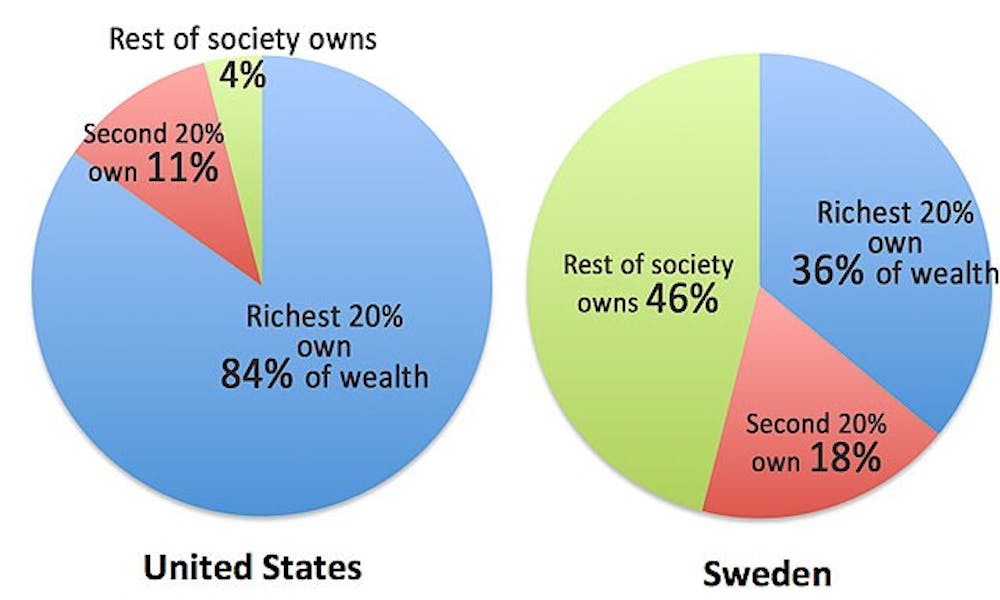All men are created equal—but their incomes are anything but.
A recent study by Dan Ariely, James B. Duke professor of behavioral economics, found that 20 percent of Americans rake in 84 percent of the nation’s wealth, while the bottom 40 percent only owns a low 0.1 percent. The study surveyed 7,000 Americans with various levels of income and education about the optimal levels of wealth inequality in the U.S. It aimed to discern the average American’s opinion on income inequality in order to give them a voice in the national debates on tax rates and welfare reform.
According to Ariely’s article, “Building a Better America—One Wealth Quintile at a Time,” which he co-wrote with Harvard Business school professor Michael I. Norton, most Americans do not understand how much wealth the top 20 percent possesses.
Ariely’s conclusions with regard to income variance were striking. It found that the US has one of the worst levels of income inequality—not just in the West, but in the world.
“The Gini coefficient of the United States, which is used to measure income disparity, is very high,” Ariely said. “It’s higher than that of any Western country, comparable to that of China, and close to those found in South America.”
John Aldrich, Pfizer-Pratt university professor of political science, also noted the problem’s severity.
“[Wealth inequality] is a very large problem and not just an economic one, but one that is eroding the social fabric of the nation,” he wrote in an email.
It will not only take substantial effort to motivate the public to advocate for change, but also significant amounts of time for the government to agree on policy changes, Aldrich said. For example, ending the Bush tax cuts—a step that would help reduce the wealth divide—would likely take a long time in Congress due to the issue’s polarizing nature.
Moreover, income inequality is detrimental to a democratic society because it prevents the poorest citizens from making educated decisions, Ariely said.
“Income inequality creates a class society that is hard to reverse because the bottom will be uneducated and uninformed,” he said.
While Ariely believes that a short-term fix would be higher taxes on the wealthy, a long-term solution would include providing better education to the poor. He predicted that the next presidential election will largely revolve around this issue.
“How much tax we collect and how much benefit for the people with lower income we are going to provide will set up the economic environment for the future,” he said.
A degree of income inequality can even be observed on campus at Duke.
“If you look around, you can obviously see that some students come from families that earn much more than others,” Sophomore Jason Ni said. “[However], all students are offered the same Duke experience and opportunities to engage in the Duke community.”
Ariely also believes that it is up to the public—especially people of low income—to be less complacent.
“The interesting thing about Americans,” Ariely said,” is that they believe in social mobility. [Whatever social class] you are born [into], you can get out of it.”
While some cases do occur, however, Ariely added that the belief in social mobility also allows people to accept higher levels of social inequality. He is optimistic due to a general consensus among both Republicans and Democrats that a fairer society is desirable.
“Democratic and Republican differences are incredibly small when regarding this issue, which leads me to suspect that deep down, people believe that our society should be more equal,” Ariely said.
Get The Chronicle straight to your inbox
Signup for our weekly newsletter. Cancel at any time.

